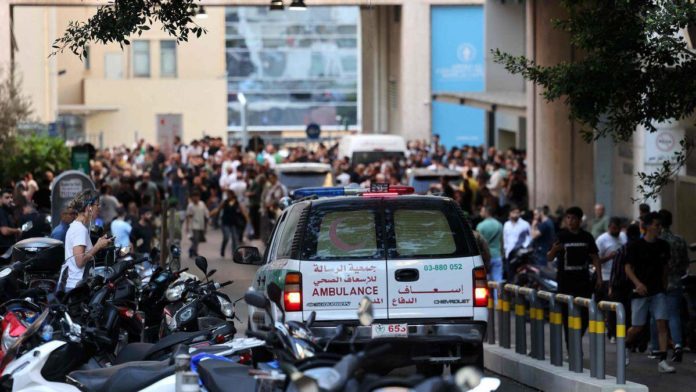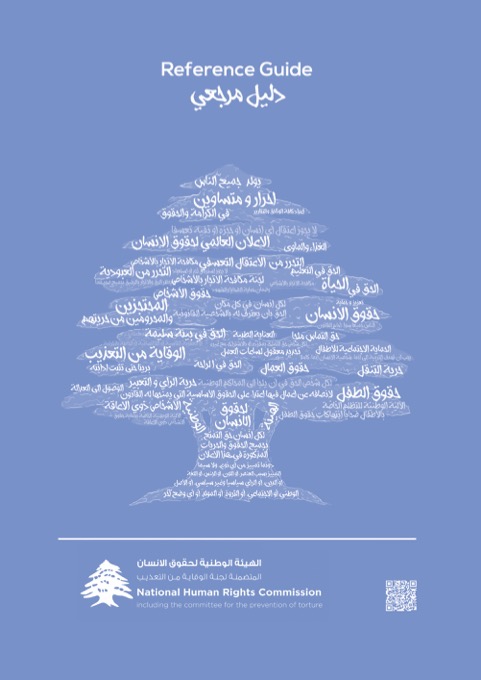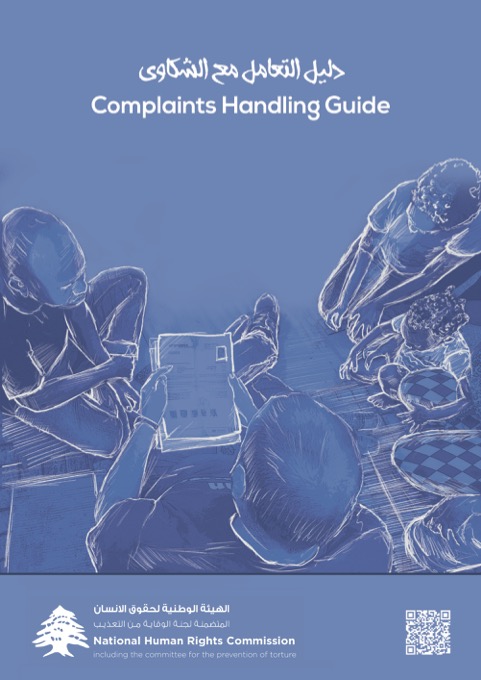هذا التقرير متاح أيضًا بـ: العربية (Arabic)
The National Human Rights Commission, which includes the Committee for the Prevention of Torture, said that the Israeli cyber attack that took place yesterday, Tuesday, and was repeated today, Wednesday, presents a terrifying picture of the future of wars and the severe and unprecedented violation of international humanitarian law.
The Ministry of Health in Lebanon announced that thousands of pagers and other wireless devices exploded simultaneously across Lebanon on September 17 and 18, 2024, resulting in martyrs, including at least two children and two relief workers, and more than three thousand injuries. The Commission called for the need to work to ensure that all health facilities respond to the injured in the hope of a speedy recovery for the wounded and for all those who suffered trauma as a result of these attacks.
International law regulates the methods and means of warfare. There are restrictions on weapons, their use, and conduct. The principle of distinction requires parties to distinguish between combatants/military objectives and civilians/civilian objects, attacking legitimate targets only.
“The attacks carried out by the Israeli occupation forces hit civilians indiscriminately and are one of the most dangerous terrorist acts carried out by the occupation forces against Lebanon.”
“The crimes that affected thousands of Lebanese and led to the killing of dozens and the wounding of thousands must not be left without accountability and must not contribute to the consecration of the culture of impunity that the Israeli occupation state has mastered.”
NHRC-CPT called for launching a broad international campaign calling for the establishment of a new international agreement to ban lethal weapons systems, such as the ability to launch attacks on targets without real human control, in addition to cyber attacks that do not distinguish between military and civilian targets.
NHRC-CPT statement concluded, “In accordance with the provisions of Article 16 of Law No. 62/2016 (establishing the National Human Rights Commission), the Commission will monitor and document violations of human rights and international humanitarian law that occurred as a result of these attacks, similar to the monitoring it has been doing since the start of the aggressive military operations against Lebanon in October 2023, and will follow up by all available means to put an end to impunity.”
NHRC-CPT said that it is preparing a detailed report that refutes the various violations of international humanitarian law, which include all aggressive military operations carried out by the Israeli occupation forces inside Lebanese territory, in addition to other persistent and ongoing violations, which include the continued injuries resulting from landmines and cluster bombs planted or dropped by the Israeli occupation forces in southern Lebanon, in addition to other violations related to international humanitarian law. The Commission’s annual report for the year 2024 will also include a chapter on these violations.
Background
As rapid technological advances bring “killer robots” ever closer to reality, Human Rights Organizations are calling on states to support the negotiation of new international law to ban fully autonomous weapons systems. The Convention on Certain Conventional Weapons (CCW) Group of Governmental Experts (GGE) on Lethal Autonomous Weapons Systems met in Geneva between 27 and 31 August 2018. The meeting was a key moment for states to discuss options for addressing the human rights, humanitarian, ethical and security challenges posed by fully autonomous weapons systems. The LAWS meeting discusses many technical issues related to the use of LAWS, including the challenges that technology poses to international humanitarian law and human interaction in the development, deployment and use of emerging technology in law. States continue to meet repeatedly through the Contracting Parties to the Convention on Prohibitions or Restrictions on the Use of Certain Conventional Weapons Which May Be Deemed to Be Excessively Injurious or to Have Indiscriminate Effects, without reaching agreement to begin negotiations on a legally binding instrument.
On 9 August 2024, After three years of work, the committee established by the UN General Assembly to negotiate a new convention on cybercrime agreed on a draft convention text. The draft convention is expected to be adopted by the General Assembly later this year, thus becoming the first global legally binding instrument on cybercrime. As noted in the draft convention, technology has created opportunities for a greater scale, speed, and scope of crimes, from terrorism to drug trafficking to trafficking in persons, migrant smuggling, firearms trafficking, and more. The draft convention provides tools that will enhance international cooperation, law enforcement efforts, technical assistance, and capacity-building relating to cybercrime.


